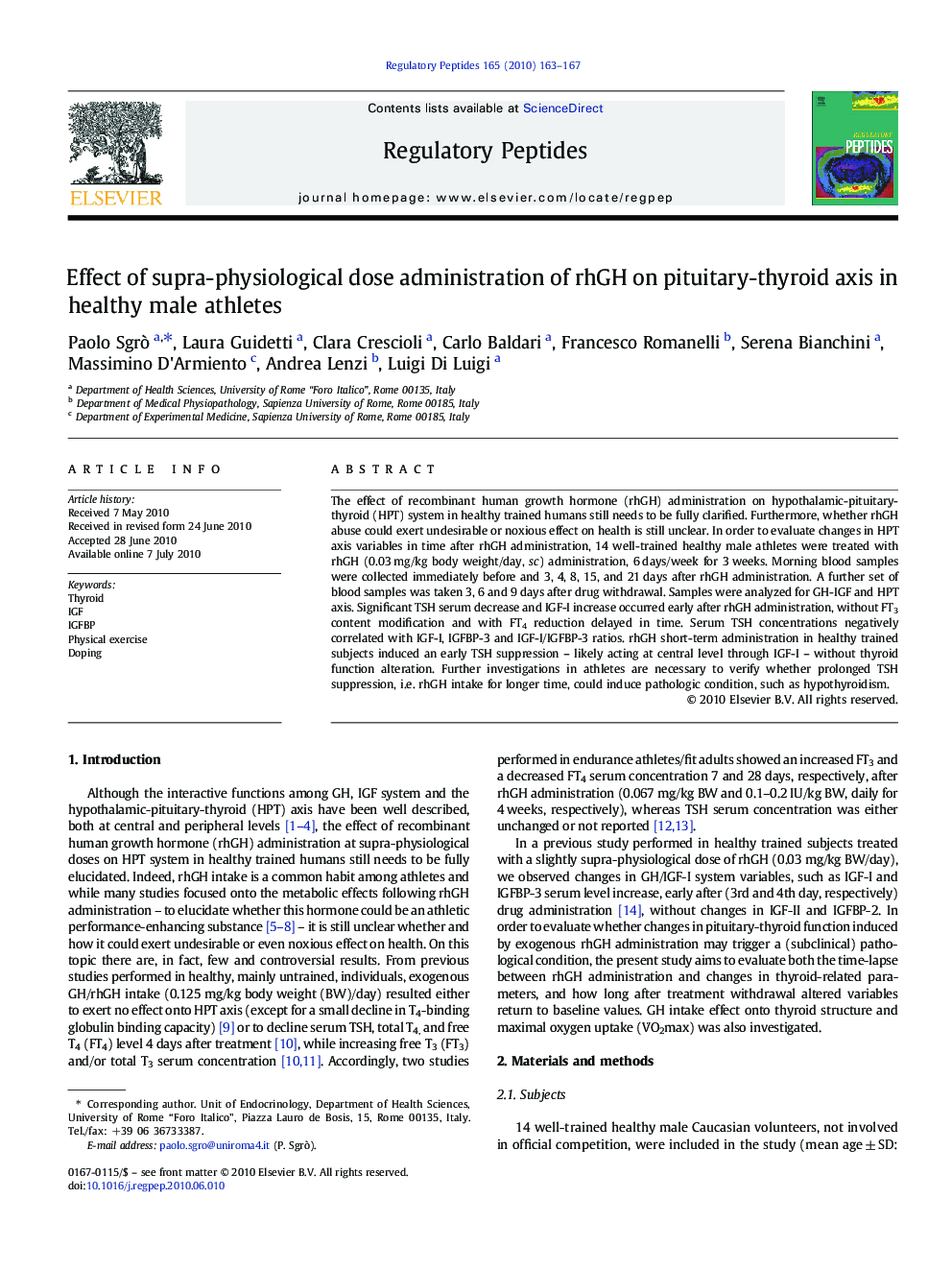| Article ID | Journal | Published Year | Pages | File Type |
|---|---|---|---|---|
| 2022671 | Regulatory Peptides | 2010 | 5 Pages |
The effect of recombinant human growth hormone (rhGH) administration on hypothalamic-pituitary-thyroid (HPT) system in healthy trained humans still needs to be fully clarified. Furthermore, whether rhGH abuse could exert undesirable or noxious effect on health is still unclear. In order to evaluate changes in HPT axis variables in time after rhGH administration, 14 well-trained healthy male athletes were treated with rhGH (0.03 mg/kg body weight/day, sc) administration, 6 days/week for 3 weeks. Morning blood samples were collected immediately before and 3, 4, 8, 15, and 21 days after rhGH administration. A further set of blood samples was taken 3, 6 and 9 days after drug withdrawal. Samples were analyzed for GH-IGF and HPT axis. Significant TSH serum decrease and IGF-I increase occurred early after rhGH administration, without FT3 content modification and with FT4 reduction delayed in time. Serum TSH concentrations negatively correlated with IGF-I, IGFBP-3 and IGF-I/IGFBP-3 ratios. rhGH short-term administration in healthy trained subjects induced an early TSH suppression – likely acting at central level through IGF-I – without thyroid function alteration. Further investigations in athletes are necessary to verify whether prolonged TSH suppression, i.e. rhGH intake for longer time, could induce pathologic condition, such as hypothyroidism.
Research Highlights► This paper describes changes in the hypothalamic-pituitary-thyroid axis after rhGH short-term administration in male athletes that induces an early TSH suppression – likely acting at central level through IGF-I – without thyroid function alteration. ► We hypothesize that abuse of rhGH may induce in athletes a pathological condition such as hypothyroidism.
